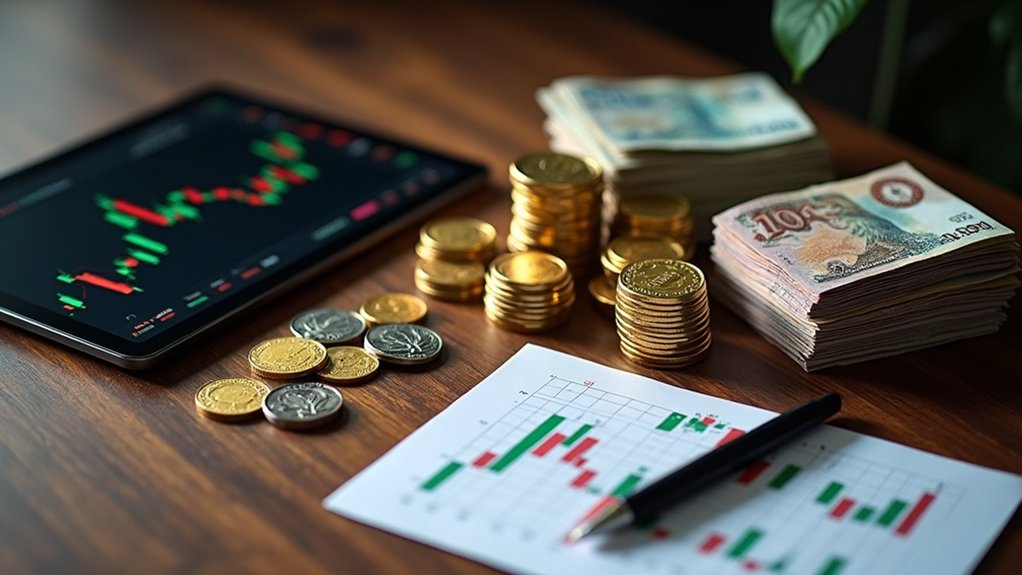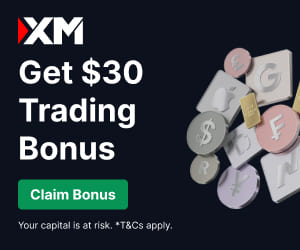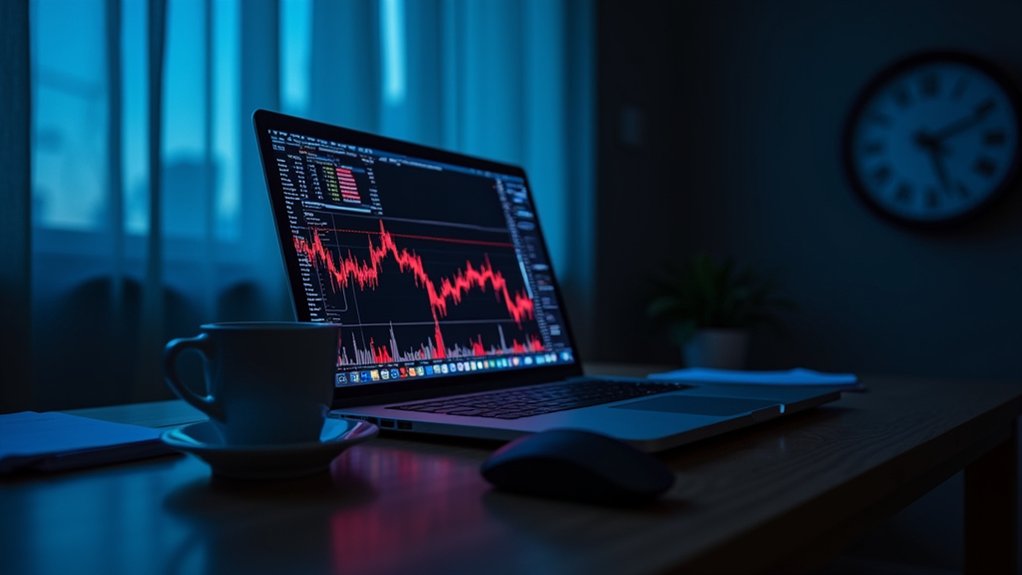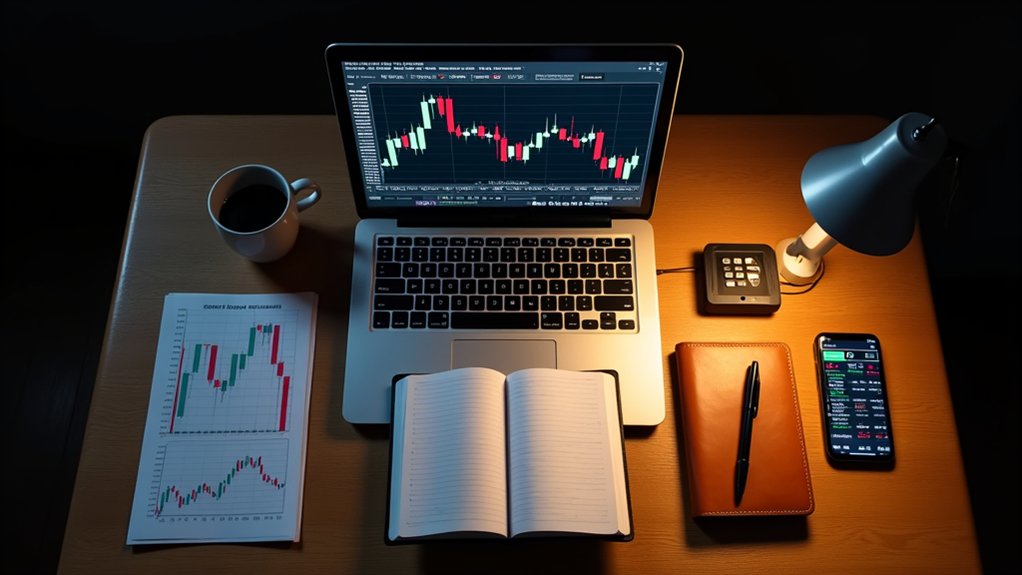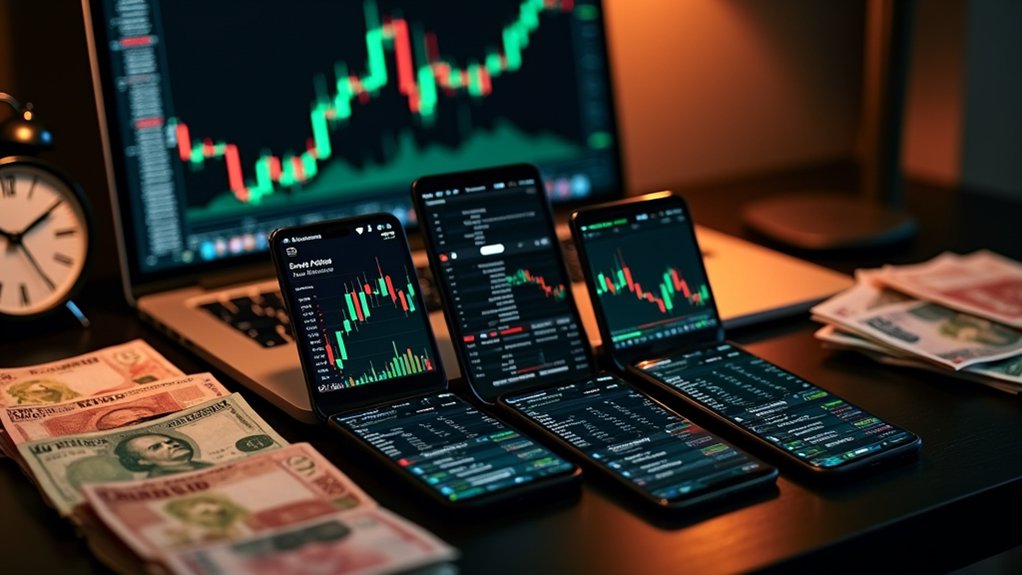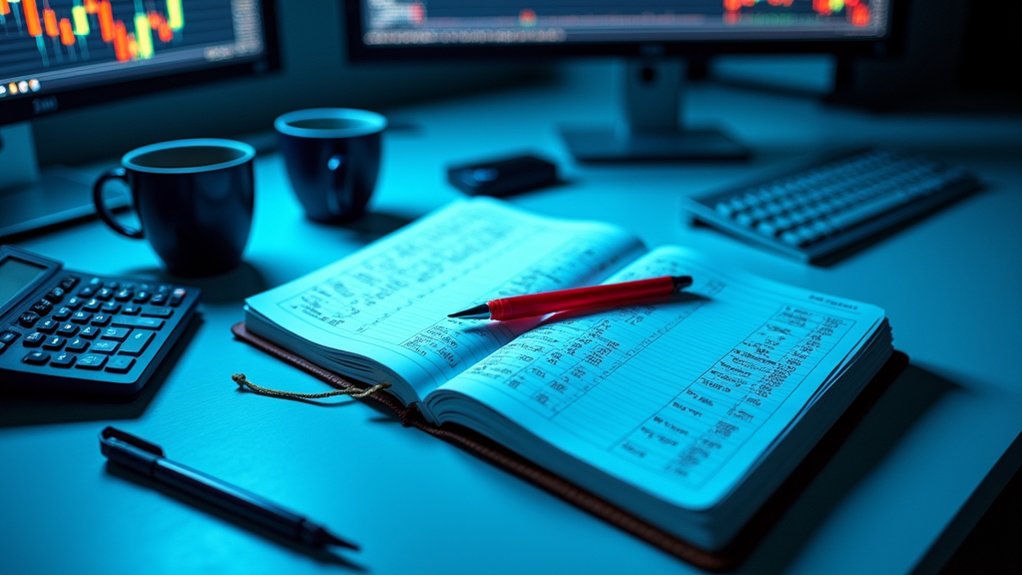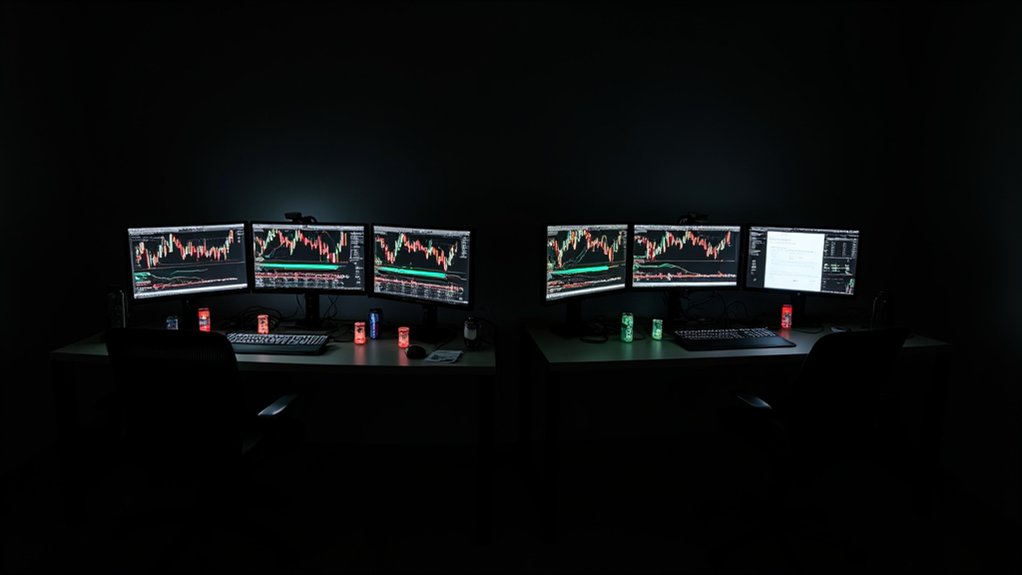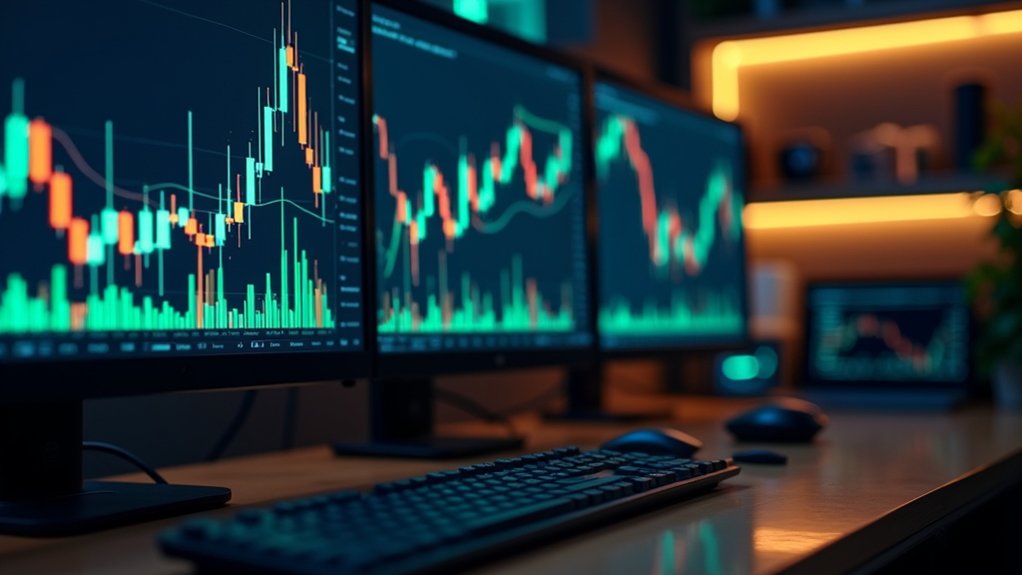Forex brokers rake in cash through spreads—the gap between buy and sell prices—plus commissions on trades and swap fees for positions held overnight. They profit whether traders win or lose, which explains why they push education and bonuses so hard. Market makers take the opposite side of client trades, creating a potential conflict of interest. STP and ECN brokers route orders to liquidity providers instead. Volume drives everything; thousands of daily clicks across global markets translate into serious revenue. The mechanics behind these profit streams reveal why the house almost always wins.

Forex brokers in Africa don't run charities. They're businesses, and they make money every time a trader in Lagos, Nairobi, or Johannesburg clicks buy or sell. The primary cash cow? Spreads. That's the difference between the bid and ask price on any currency pair. Brokers mark up the spreads they get from liquidity providers and pocket the difference. Every trade. Every time. A Nigerian trader buying EUR/USD pays more than the raw market price, and the broker banks that markup.
Multiply that by thousands of trades daily across Ghana, Kenya, Egypt, Morocco, and South Africa, and the numbers get fat quickly.
Some brokers also charge commissions, especially on ECN or STP accounts popular with serious traders in Mauritius or Botswana. These are flat fees or percentage-based charges per trade. Then there's overnight financing, also called swaps. Hold a position past 5 PM New York time, and the broker charges or credits interest.
For brokers with massive client bases across Tanzania, Uganda, or Zimbabwe, swap fees add up to serious revenue. Inactivity fees hit dormant accounts, though not all brokers bother. Deposit and withdrawal fees are another angle, particularly in countries like Angola or Mozambique where payment processing costs run high.
Volume is king. Even tiny spreads become enormous profits when trading volumes spike. The forex market runs 24/5, so brokers in Tunisia, Senegal, or Rwanda collect revenue around the clock. Leverage amplifies this. Higher leverage means traders open bigger positions, which means more spread revenue and more swap charges for the broker. The bid-ask spread represents the fundamental trading cost in the foreign exchange market, and it's where brokers extract their primary profit margin on every executed order. This spread markup is added on top of the raw interbank spread, creating an additional layer of compensation for the broker while increasing the overall cost for currency traders.
Scalability matters too. A broker with 10,000 active clients in Ethiopia, Zambia, and Ivory Coast generates exponentially more than one with 1,000. The average publicly-traded forex broker pulls in net revenue around $457 million, demonstrating just how profitable the industry can be at scale. The top institutional players dominate the game, with five entities holding roughly 40% of global market share.
Broker business models vary. Market makers take the opposite side of client trades, profiting from spreads and sometimes from client losses. That's a conflict of interest, but it's how many operate. STP and ECN brokers route orders straight to liquidity providers, earning from commissions and spread markups instead. Hybrid models mix both approaches. White label brokers in smaller African markets license platforms from bigger players and split the revenue. Reputable brokers maintain segregated client funds in separate accounts from their operational capital, a practice enforced by regulatory bodies to protect trader deposits. When choosing a broker, traders should evaluate regulatory compliance alongside fee structures to ensure both profitability and security.
Here's the ugly truth: most retail traders lose money. Brokers know this. In a market-maker model, client losses can mean broker profits. Active traders are gold because they generate repeated spread and commission charges. The statistical reality shows that approximately 90% of retail traders experience losses in the long run, which directly impacts broker revenue models. Brokers push education and incentives to keep clients trading. More trades, more revenue. That's the game from Cairo to Cape Town.
Common Questions
Do African Forex Brokers Charge Higher Spreads Than International Brokers?
Yes, they do. AvaTrade (Official Site 🔗), South Africa's FSCA-regulated darling, charges spreads from 0.9 pips on EUR/USD.
Meanwhile, international brokers like IC Markets, Pepperstone, and OANDA offer raw spreads from 0.0 pips—though they tack on commissions. MultiBank Group provides 0.0 pip spreads on ECN accounts too.
The gap is real. African-regulated brokers typically run wider spreads, often fixed, while global players offer tighter raw spreads with separate commission structures. Cost difference? Significant.
Can Nigerian Traders Use Offshore Brokers to Avoid Local Restrictions?
Nigerian traders already use offshore brokers—it's not about avoiding restrictions, because retail forex trading isn't banned.
The CBN limits forex sales through local banks, but that doesn't touch offshore accounts.
SEC Nigeria warns against unlicensed platforms, not individuals trading abroad.
Offshore brokers with real regulation (FCA, CySEC, FSCA) remain accessible and legal.
Payment channels sometimes hiccup when CBN shifts policy, but the core access stays open.
It's practical, not evasion.
Which Payment Methods Do Kenyan Brokers Accept for Deposits and Withdrawals?
Kenyan brokers accept M-Pesa, Airtel Money, and EazzyPay for instant mobile money transactions in KES.
Local and international bank transfers work for KES and USD, taking one to five days.
Skrill and Neteller process deposits instantly, withdrawals in one to two days.
VISA and Mastercard handle deposits immediately, but withdrawals can drag up to 15 days depending on the card issuer.
Most brokers skip internal fees, though banks and payment providers still take their cut.
Are Unregulated Brokers Operating in Zimbabwe and Ghana Safe to Use?
No. Unregulated brokers in Zimbabwe and Ghana operate without oversight from the SEC, RBZ, or Bank of Ghana. That means no segregated client funds, no audit requirements, no dispute resolution.
Traders routinely complain about withdrawal problems, price manipulation, and platforms vanishing overnight. Authorities across both countries warn against these firms repeatedly. The risk of losing deposits or profits is real.
Regulated alternatives exist—they're harder to access, sure, but at least your money isn't sitting in someone's unmonitored pocket.
Do South African Brokers Offer Better Trading Conditions Than Egyptian Brokers?
Yes, South African brokers generally offer better conditions than Egyptian ones.
FSCA regulation is tighter—segregated funds, regular audits, real consequences for breaking rules.
Egyptian oversight is looser, enforcement weaker.
South African brokers provide ZAR accounts, competitive spreads, transparent fees, and access to global platforms.
Egyptian brokers face currency controls, fewer payment options, wider spreads.
Leverage can hit 1:500 in South Africa with clear rules.
Egypt? Less clear, less protection.
South Africa wins on security, reputation, and trading conditions.
